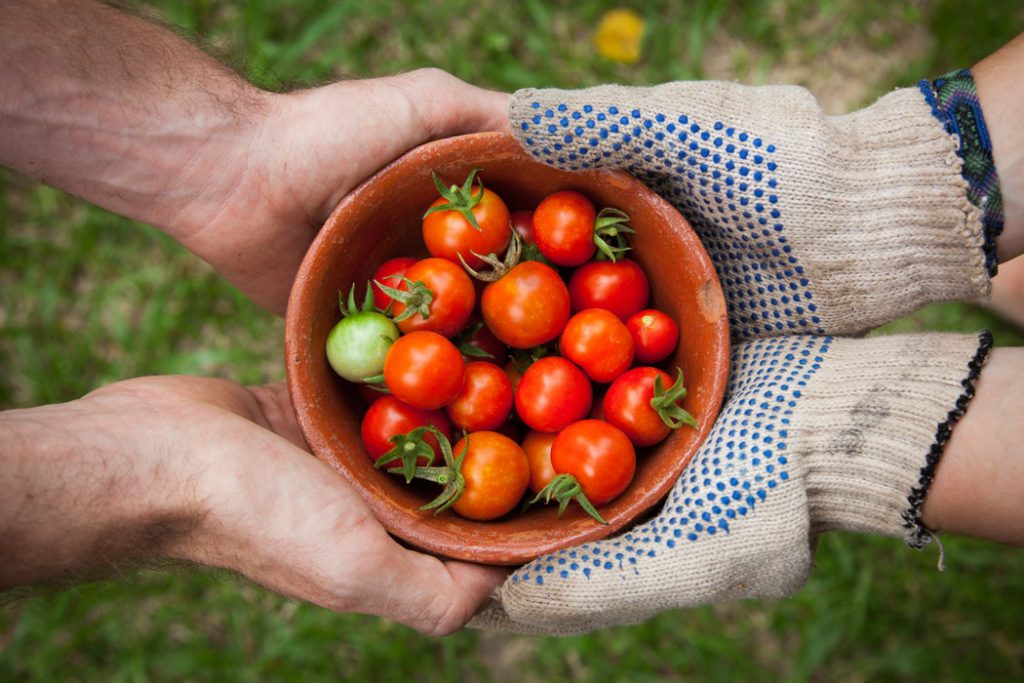What’s a key part of a nutritious diet? Most of us can automatically recite the answer: fruits and vegetables.
And yet research shows when it comes to eating the daily recommended amount of produce, most Queensland adults simply don’t.
Only seven per cent of adults eat the recommended five serves of vegetables per day, while 57 per cent are eating the recommended two serves of fruit a day.
With this in mind, Cancer Council Queensland CEO Ms Chris McMillan is answering common questions and providing tips to help people get on the road to enjoying fruit and vegetables several times a day.
One, how do servings work?
The size of a standard serve can be different for different foods. A serve of vegetables is about 75grams or half a cup of cooked green or orange vegetables. When it comes to salad, a serve is one cup of leafy greens or raw vegetables to equal one serve. For fruit, the standard serve is about 150grams or one medium size piece of fruit, such as an apple or orange. Two small apricots or plums would equal a serve.
Two, how healthy are frozen vegetables?
Frozen veggies are usually picked in their prime and snap-frozen very soon after harvesting, so as well as being convenient, they are full of the same nutrients as fresh vegetables.
Three, should you give up fruit to lose weight?
One of the biggest reasons health experts recommend eating fruit is because it is abundant in vitamins, minerals and phytochemicals, with evidence increasing that whole foods are more effective in reducing the risk of cancer than specific vitamin and mineral supplements. As well as being beneficial for overall health, most fruits are low in kilojoules and high in fibre and water, making you feel fuller. This reduces the risk of over eating, which can actually cause weight gain. If you are aiming to lose weight, you are more likely to be successful if you snack on whole fruit and minimise discretionary foods, such as cookies, chips and cake, because they are high in kilojoules, but low in essential nutrients.
Four, what about dried fruit or juices?
Fresh is best, as whole fruit contains a lot of fluid and helps fill us up. Dried fruit has had the water removed, concentrating the sugars. Also, while we will feel full after eating one or two apricots, it’s not going to be the same after one or two dried ones. Fruit juice is often perceived as healthy, but is similarly problematic – no fibre and high in sugar. Store-bought fruit juices can contain just as much sugar as a sugary soft drink. If you love your juices, opt to blend at home instead – just stick to a small handful of fruit and include vegetables in the mix.
Five, how easy is it to have all seven serves each day?
By having fruit and vegetables throughout the day, it’s easy to make sure you are eating the right balance of foods. For example, throw some fruit on top of your oats at breakfast, crunch on a green salad, with strawberries, at lunchtime, serve vegetables raw with low-fat dip for an afternoon snack and add veggies to the dishes your family loves at dinner. Spaghetti is a popular dish that can be secretly supplemented with veggies. Just add finely chopped mushroom, onions, spinach or eggplant to a flavourful diced tomato based spaghetti sauce. Then, serve with half zucchini noodles and half wholemeal pasta for an even bigger veggie boost.

More than 27,000 Queenslanders are diagnosed with cancer each year – up to one third of those cases could be prevented through lifestyle changes, including maintaining a healthy diet.
Healthy eating can also help boost your immune system, improve your concentration levels and mental health, provide more energy and help reduce your risk of other diseases.
So, the next time you’re plating up a meal, think about the variety of foods you’re including.
Opt for foods that are low in sugar, saturated fat and salt and be sure to include plenty of fresh fruits, vegetables, grains, low fat dairy options, and lean proteins.
More information about Cancer Council Queensland and reducing cancer risk is available at cancerqld.org.au.
For more information or interviews, please contact:
Senior Media Advisor,
Cancer Council Queensland
Phone: (07) 3634 5171
Mobile: 0488 015 702

